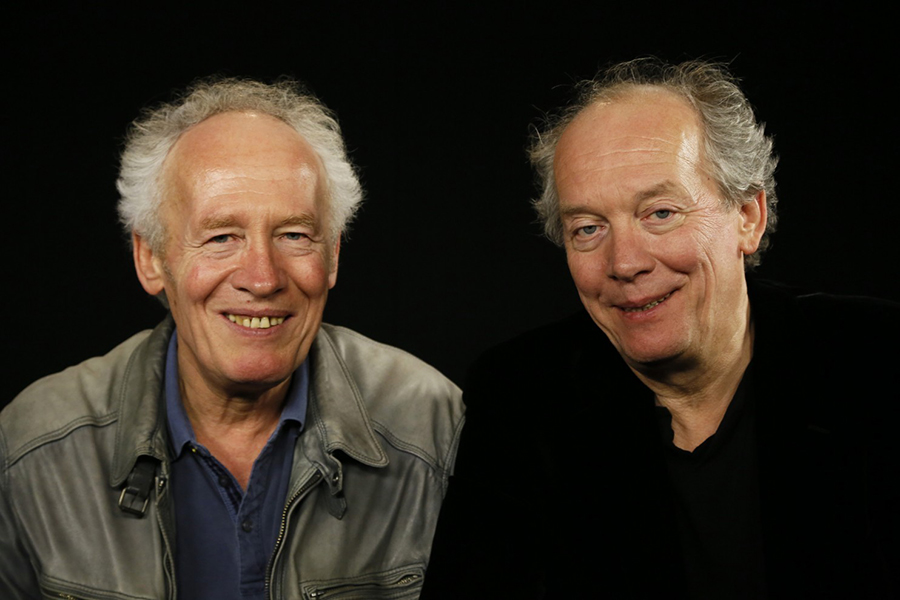
American audiences might be familiar with Marion Cotillard, the Oscar-nominated star of the March 13 Filmworks movie “Two Days, One Night.” But the acclaimed labor drama might be their introduction to the Belgian filmmaking duo of Jean-Pierre and Luc Dardenne.
According to the British newspaper The Guardian, there are only seven filmmakers who have twice won the top prize at Cannes, the prestigious Palme d’Or — and the Dardenne brothers are two of them. For 20 years, the French-speaking, Belgium-born brothers have crafted neo-realist dramas about the everyday lives of working-class people, where the workplace often becomes a battleground and young people often live on the fringes of society. Growing up in the Belgian industrial town of Seraing, a sort of little Detroit, the Dardennes understand work, and that understanding has deeply influenced their films.
The Dardenne brothers first grabbed international attention in 1996 with their third feature, “La promesse (The Promise).” The film tells the story of young Igor, who helps his father rent apartments to undocumented immigrants and scam them out of their meager wages. Igor faces a moral dilemma when one of their tenants is hurt during a surprise government inspection.
In 1997, critic Michael Wilmington of the Chicago Tribune, compared “La promesse” with the great neo-realist masterpieces “Pather Panchali” from India and “The Bicycle Thief” from Italy. “This new Belgian film,” Wilmington wrote, “is one of those small masterpieces, seemingly limited in scope, that grows larger as you watch it and expands even more in your memory. It has the shattering effect of the great neo-realist films.”
The stark, twitchy “Rosetta” in 1999 earned the Dardenne brothers their first Palme d’Or at the Cannes Film Festival. The film, which tells the story of a 17-year-old girl who obtains a series of factory jobs to try and escape her oppressive family’s trailer-park life, is perhaps most noted for the hand-held, documentary-style camera work of cinematographer Alain Marcoen, who first worked with the Dardennes on “La promesse” and has collaborated with them many times since.
In 1999, critic Lisa Schwarzbaum of Entertainment Weekly wrote: ” ‘Rosetta’ stuns by closing in almost claustrophobically on the small, repetitive gestures of despair and determination. … Rosetta is a character of raw pride in a film of lingering power.”
The Dardenne brothers followed their Cannes breakthrough with, among other films, 2002’s “Le fils (The Son),” the story of a rehab center worker’s unlikely adoption of a young apprentice. And in 2005, they won the Palme d’Or a second time for the heartbreaking crime drama “L’enfant (The Child),” the story of a young couple living off her her welfare benefits and his gang’s petty thefts. The couple decides to try and sell their newborn son on the black market to make some quick cash, only to immediately regret their decision.
Before the current “Two Days, One Night,” the Dardenne brothers’ most recent film, 2011’s “Le gamin au vélo (The Kid with a Bike),” has been noted by some critics to brighten up their earliest harsh aesthetics by adopting a sort of fairytale framework. Yes, the film tells the story of a young boy who is abandoned by his father, as he is taken in by his small town’s hairdresser. But critic Ann Hornaday of The Washington Post assures us that the brothers “never set out to break your heart — which is not to say they don’t come perilously close.”
That brings us to their latest film, “Two Days, One Night.” This movie has been hailed by critics as a masterwork of the human spirit, as the film’s protagonist, Sandra (played by Cotillard), tests the limits of her working-class community’s solidarity. It’s territory that the Dardenne brothers continue to explore.
In an interview with the online magazine 99u, Luc Dardenne says, “Work is enabling a body to live. Our characters are people who used to work and then they lost their jobs, are unemployed now, and this has had a great impact on them. … Work labor has always had an important role in our cinema — the visible work, the manual work, it has played a role in our life.”
Their characters not only live on the margins of society; they’re in society. As Jean-Pierre Dardenne told the online magazine Vulture, reflecting on Sandra’s comparatively privileged life in “Two Days” as compared with the protagonists in their earlier films: “They work, they live in houses or nice apartments. But they do have difficulties. That’s what is so interesting to us, because it makes their choices a moral one — not uniquely a choice made out of desperation.”
Jefferson Beavers serves as president of the Filmworks board.
